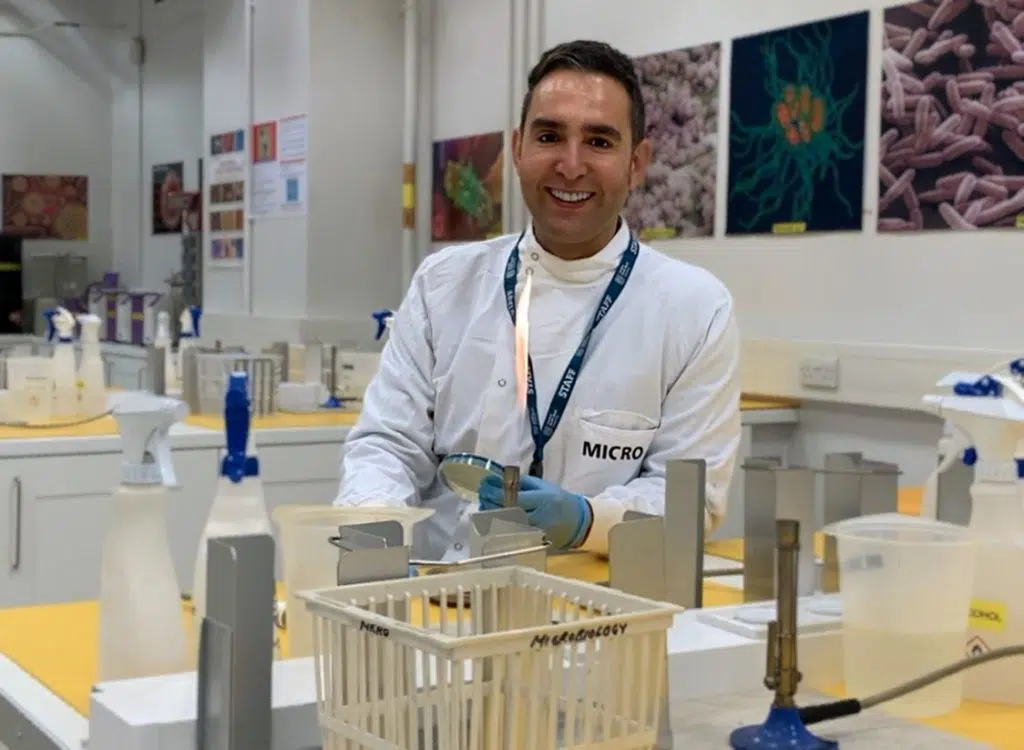In order to find out, we’d like to introduce you to a new member of our Chuckling Goat tribe – Miguel Toribio-Mateas – our brand-new Head of Research and Development.
Miguel is a clinical neuroscientist with a longstanding background in the interface between nutrition, the gut microbiome, and mental health. The communication between gut microbes and the brain or “the gut-brain axis” is what gets him really fired.
“We can all see what chemicals are doing to the planet around us, as well as to the delicate ecosystems inside our gut. The ramifications of food systems and lifestyles that are out of sync with natural rhythms in nature are becoming increasingly obvious. I love the fact that Chuckling Goat is a value-driven company on a mission to make the planet a better and healthier place, one human ecosystem at a time! That’s why I am delighted to be part of the team”, Miguel tells us.
Miguel’s most recent project was as consultant scientist on Channel 4’s Food Unwrapped, where they asked the question, “Can kefir reduce stress and improve your mood?”
To answer these questions, Miguel designed an experiment with the Food Unwrapped crew as participants. Celebrity chef Matt Tebbutt and two others provided a microbiome/stool sample in advance of starting a 3-week course of kefir. In addition to the microbiome test, they also completed a validated questionnaire to measure stress levels.
Can kefir reduce stress?
The results were really interesting. One of the three participants experienced a substantial reduction in stress levels alongside a considerable increase in microbial diversity. This is “the ideal case scenario”. We know that the gut is connected to the brain via a complex network of nerves, neurotransmitters, and hormones, so these changes help illustrate the fact that when the gut thrives with health, the brain tends to benefit as a result. Microbial diversity is one of the best-researched indicators of gut health, hence the importance of the increase for this participant.
A second participant also experienced a sizeable reduction in stress levels, although his microbial diversity was very similar before and after the results. This case is also interesting because his microbial diversity was just above average to start with, and it stayed at the same level after the kefir course. As humans, we tend to be competitive in our thinking, i.e., we think more is better. However, when it comes to gut health, conservation of something that’s already good is not to be dismissed as a negative.
“Matt Tebbutt’s case was perhaps the most interesting one,” says Miguel. “The communication between the gut and the brain is bidirectional. This means that when we’re really stressed, the gut has a hard time taking in “the goodness” from healthy foods like kefir. This was the case with Matt, whose stress scores increased just marginally but enough to dampen down the beneficial effects of the kefir, losing a little microbial diversity as a result.”
We’re excited by this mini-experiment because we hear similar results from many of you who drink our kefir on a daily basis. Perhaps you have your own story that you’d like to share with us? We’d love to hear from you!
If you missed the programme, you can watch it on 4 on Demand / Channel 4 by clicking on the following link: Food Unwrapped: Healthy Hacks, 16 August 2021.














